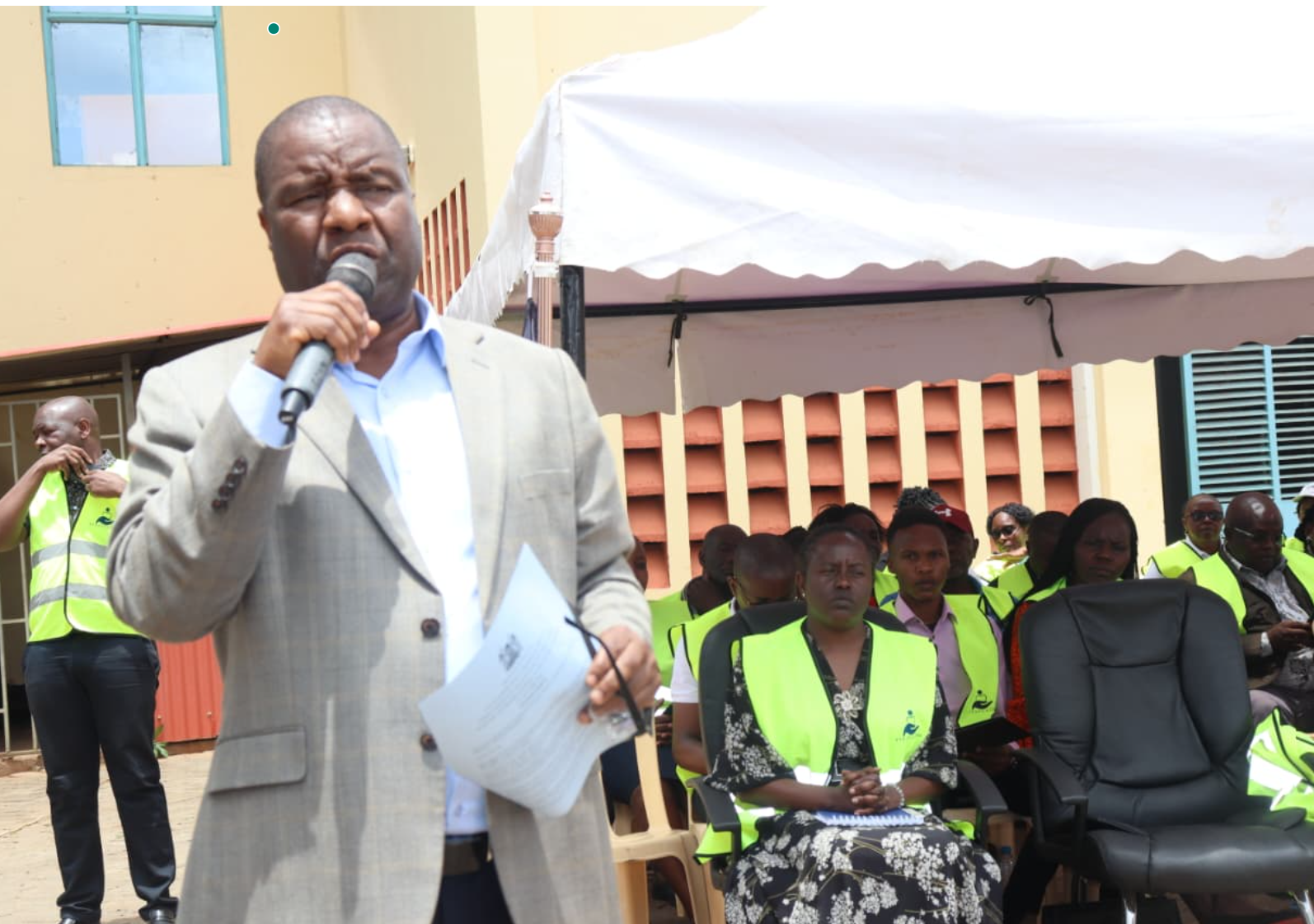 James Ntabo, Director of Administration at the Ministry of Health, during the event.
James Ntabo, Director of Administration at the Ministry of Health, during the event.
Speaking during the World Hospice and Palliative Care Day celebration held on October 8 at Embu Level 5 Hospital, the Director of Administration at the Ministry of Health, James Ntabo, who represented Principal Secretary Dr. Ouma Oluga, said the figures highlight the urgent need to scale up compassionate care across the country.
“Over 800,000 Kenyans need palliative care annually, but only a fraction — 29,016 — received services in 2023. Children remain disproportionately underserved, with less than 5 percent accessing care,” he said. “The burden of serious health-related suffering continues to rise, driven by cancer, HIV, stroke, congenital conditions among others. Families in rural and underserved areas still face catastrophic health expenditures.”
The remarks were made as Kenya joined the world in marking this year’s event under the theme “Achieving the Promise: Universal Access to Palliative Care.”
Ntabo told participants that Kenya had made bold strides toward ensuring that all patients with life-limiting illnesses live with dignity and minimal pain.
“We recognize palliative care as a human right, anchored in our Constitution and embedded in our Universal Health Coverage agenda,” he said. “The launch of the Kenya Palliative Care Policy 2021–2030 has provided a national framework for action.”
He noted that the Ministry had established a dedicated Palliative Care Division in 2023 and a Technical Working Group in 2024 to guide its rollout. The network of facilities providing such services has grown from 40 in 2014 to more than 120 today, reaching hospitals, communities, and homes.
“Community Health Promoters are now sensitized to deliver basic palliative care, ensuring grassroots access. Oral morphine is centrally procured and distributed, improving pain relief for adults and children,” Ntabo said.
He added that palliative care is now covered under the Social Health Authority through the Emergency Chronic and Critical Illness Fund, easing the financial burden for families. The package covers medicines, consultations, and hospital bed support in facilities from Level 4 to 6.
Even so, Ntabo admitted that Kenya still has work to do to ensure equitable coverage.
“Recognizing the importance of expanding care to lower-level facilities, especially community-based home care, this area remains a key focus for improvement,” he said. “Future enhancements to the benefit package will be guided by the Benefit Package Technical Advisory Panel, in line with their mandate.”
Globally, the crisis mirrors Kenya’s struggle. According to the World Health Organization, more than 60 million people require palliative care annually, yet less than 15 percent receive it. Experts warn that without greater investment and integration into national health systems, millions will continue to endure unnecessary pain and suffering.
The Embu event was jointly organized by the Ministry of Health, Embu County Government, and partners including the National Cancer Institute of Kenya, the Kenya Hospices and Palliative Care Association (KEHPCA), and Beyond Zero. The commemoration featured an awareness walk through Embu town, health screening booths for blood pressure and cancer checks, and community forums aimed at demystifying palliative care.
“Palliative care is not a privilege — it is a promise. A promise we must keep. It is the measure of our compassion, the strength of our health systems, and the soul of our society,” Ntabo told participants.
He said the government was committed to operationalizing the national policy with dedicated funding, integrating palliative care into primary health services, and expanding access to oral morphine in both public and private facilities. The Ministry also plans to strengthen data systems and research to guide policy and to “build a national movement of champions to raise awareness and demand.”
The day’s theme, “Achieving the Promise,” echoed through speeches from county leaders, healthcare workers, and patient groups who called for stronger partnerships and community education.
Embu County health officials showcased local initiatives that link terminally ill patients with community health promoters and faith-based volunteers trained in basic palliative care.
The Ministry’s concept note on the event emphasizes that palliative care “optimizes quality of life and mitigates health-related suffering among adults and children with serious illnesses, and their carers.” It also notes that palliative care is a major unmet need globally, and that “universal health coverage cannot be achieved without integrating palliative care into healthcare systems worldwide.”
As the speeches ended, participants observed a moment of reflection for families who have lost loved ones to cancer and chronic illness without adequate pain relief or support.
“Let us leave no one behind,” Ntabo urged. “Let us ensure that every Kenyan — regardless of age, income, or location — has access to palliative care that is timely, affordable, and dignified. Kenya stands ready to lead, to listen, and to learn. Together, let us achieve the promise.”
















